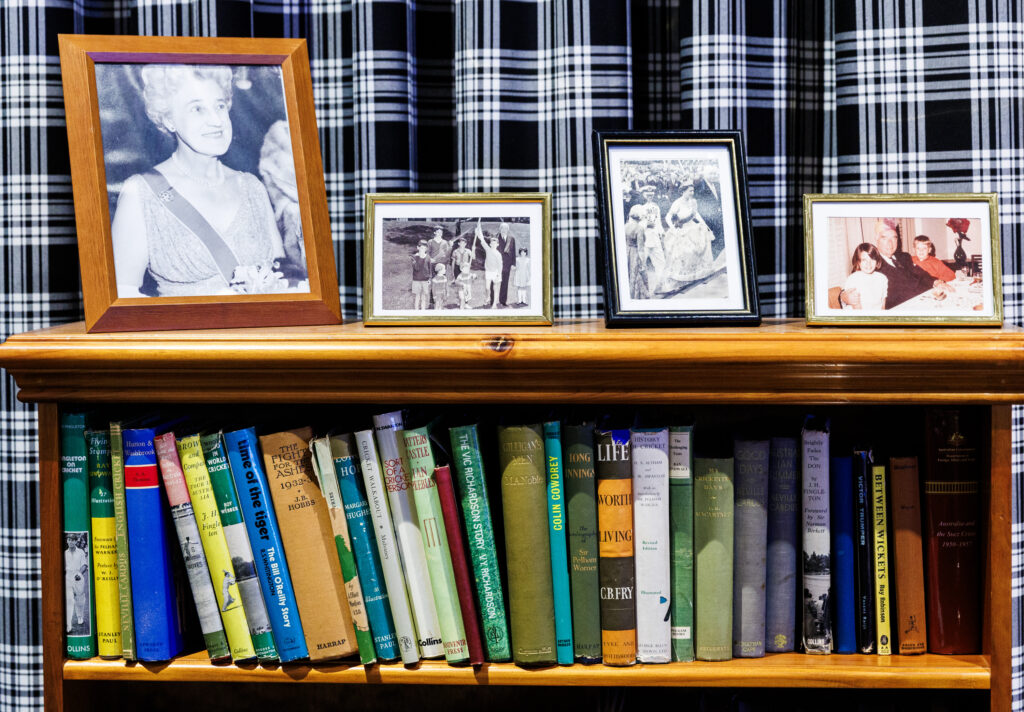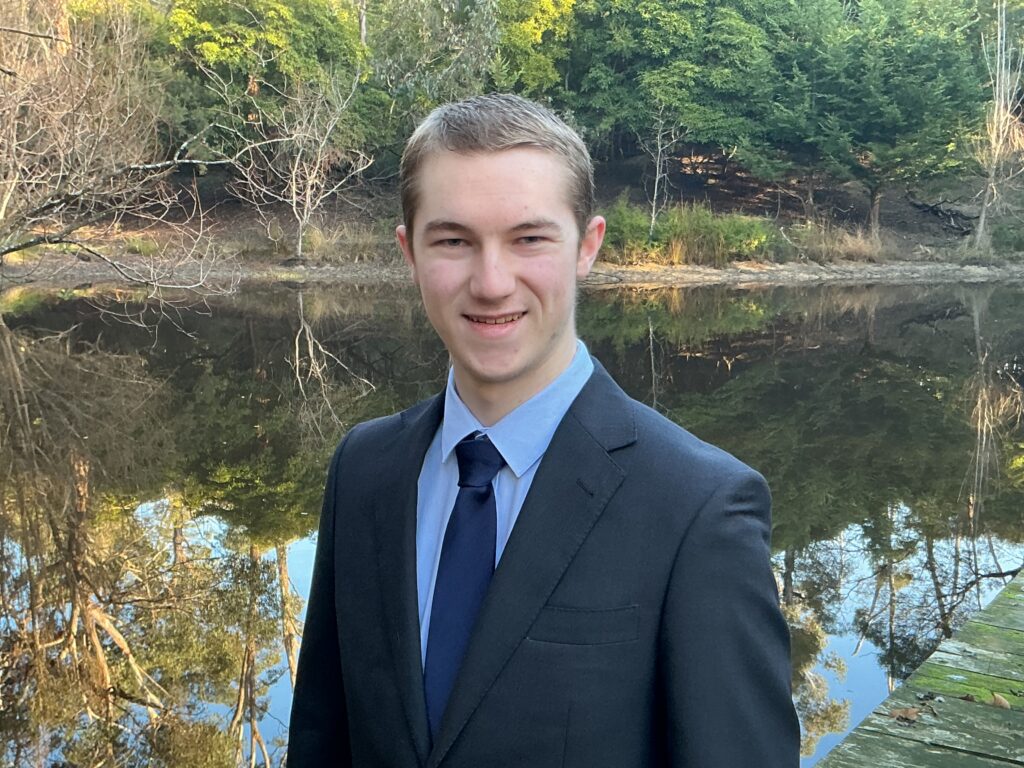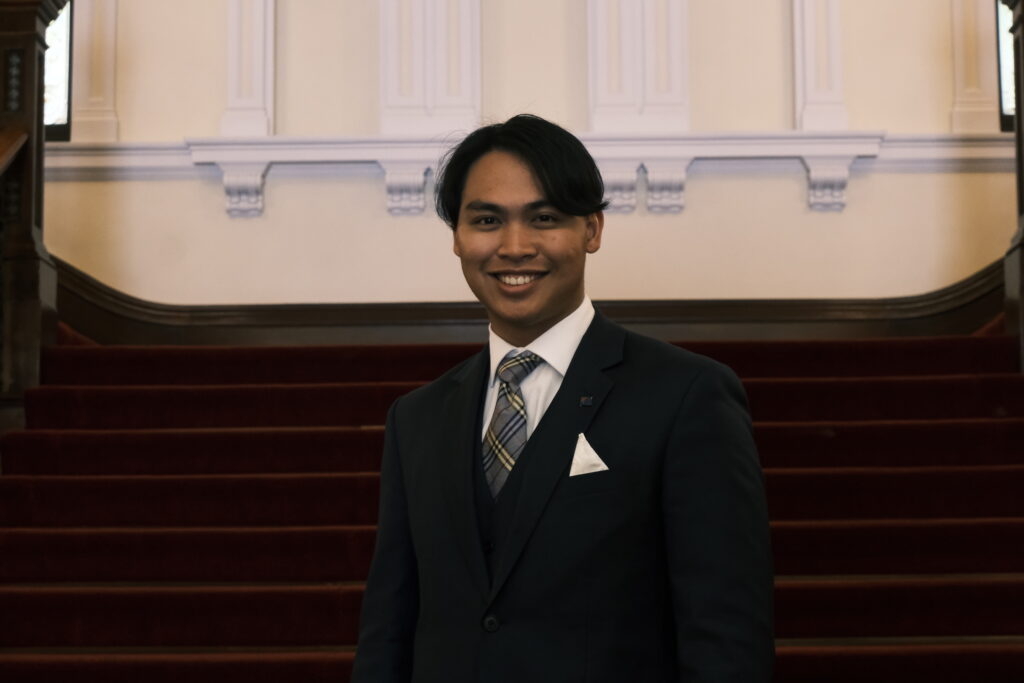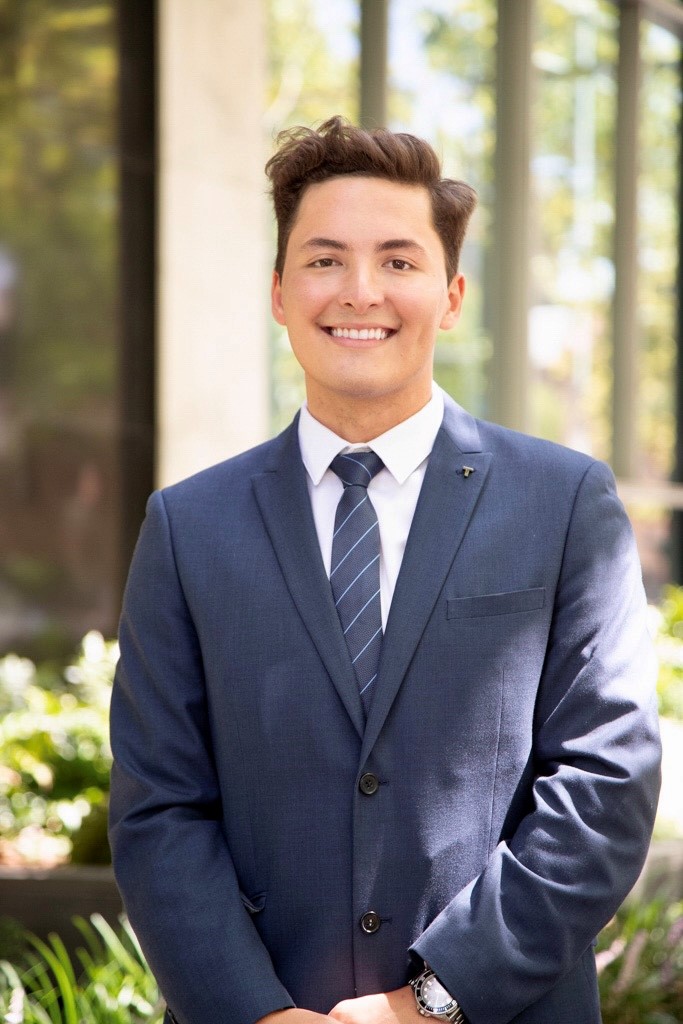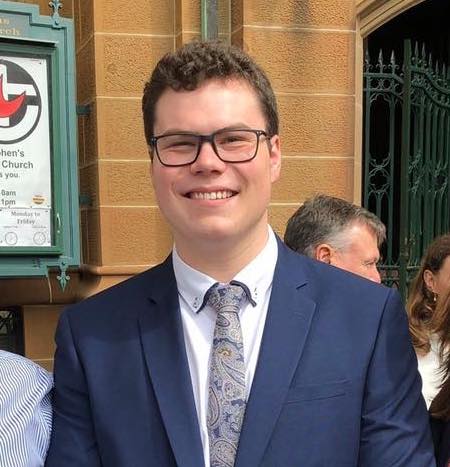Our Board
The Institute is a joint initiative of the Menzies Research Centre and the University of Melbourne. It is governed by a board of distinguished Australians and funded by public support, including a generous contribution of $7 million from the Commonwealth Government.

Leigh Clifford is Chairman of Crestone Wealth Management, a Director of Bechtel Group Inc in the USA and Chairman of Bechtel Australia Pty Ltd, a Senior Adviser to Kohlberg Kravis Roberts & Co, a member of the Council of Trustees of the National Gallery of Victoria, Chairman of the National Gallery of Victoria Foundation and Chairman of the University of Melbourne’s philanthropic campaign.
Leigh was previously Chairman of Qantas from 2007 to 2018. Prior to that he was Chief Executive and Director of Rio Tinto, and retired in 2007 after 37 years with the company.
He is a qualified mining engineer, having graduated from the University of Melbourne with a Bachelor of Engineering (Mining) and a Master of Engineering Science.
Leigh is married to Sue with 2 adult children.

Don Chandler is a partner and Adviser at LGT Wealth Management Australia following the 2022 acquisition of Crestone Wealth Management (formerly UBS Wealth). Don has enjoyed a 35-year career in financial services based in Queensland.
Along with his reputation as a respected investment adviser, Don is well known in Queensland thanks to the active role he plays in his community. He is Chairman of the Brookfield Recreation Reserve Trust, and a Councilor and Junior Vice President of the Royal National Agricultural and Industrial Association of Queensland (RNA).
Don is Chair of the RNA Foundation and sits on the RNA Executive Committee. Don recently joined the Board of The Robert Menzies Institute as an Independent Director and Deputy Chair. He also sits on the Investment Committee of the RFDS Foundation and is the Non-Executive Chairman of a private Queensland family board, and a member of the Australian Institute of Company Directors.
Don is happily married to Alison, and they have four adult children.

Peta Credlin is a political analyst who hosts her successful prime time programme CREDLIN on Sky News each weeknight, a national columnist with News Corp Sunday newspapers and The Australian, and a political contributor on the Nine radio network across 2GB, 3AW, 4BC and 6PR each week. A trained lawyer, Peta is also involved with the University of Melbourne’s School of Government, a long-standing supporter of the “Pathways to Politics” programme which aims to support women to run for parliament and was recently appointed to the board of the new Robert Menzies Institute, at the University of Melbourne.
For 16 years, Peta was a senior adviser to a number of Howard Government ministers across a range of portfolios including defence, communications and the arts, immigration and foreign affairs. Between 2009 and 2015, she was Chief of Staff to the Hon Tony Abbott AC during his time as Leader of the Opposition and later as Prime Minister of Australia. She is one of the longest serving chiefs of staff to a political leader.
Peta Credlin was born and raised in small town of Wycheproof, in the Victorian Mallee. She completed her secondary education at Sacred Heart College in Geelong before studying law at the University of Melbourne with a concentration in constitutional law, politics and history. She was a resident of Newman College for three years and university level rower.
Peta is admitted as a Barrister and Solicitor in Victoria and has a further post-graduate qualification in law from the Australian National University. In 2015, she received the Australian Women’s Leadership Award for the ACT and in December 2016, was named a joint winner of Harper’s Bazaar magazine’s ‘Woman of the Year”. She is a joint Walkley Award winner (2016), joint TV Week Logie Award winner (2017) for her role in Sky News Australia’s 2016 Federal Election coverage and a finalist in the Kennedy Media Awards for Excellence in Journalism (2021).
In the Queen’s Birthday Honours List in 2021, she was appointed an Officer of the Order of Australia for ‘distinguished service to parliament and politics, to policy development, and to the executive function of government.’

Tim Lynch is Professor of American Politics at the University of Melbourne.
In 2022-23, Tim was the Milward L. Simpson Visiting Fulbright Professor at the University of Wyoming, in America’s reddest state. His latest book, In the Shadow of the Cold War: American Foreign Policy from George Bush Sr. to Donald Trump (Cambridge, 2020), has been called ‘a cogent, graceful, provocative account’ of its subject.
His other books include Turf War: the Clinton Administration and Northern Ireland (2004) and US Foreign Policy and Democracy Promotion (2013). His co-authored book, After Bush: the Case for Continuity in American Foreign Policy (2008), won the Richard Neustadt Book Prize and became a best-selling international security text.
He is editor of the two-volume Oxford Encyclopedia of American Military and Diplomatic History (2013). His many op-eds have had over 1 million hits. He is a regular contributor for The Australian newspaper.
At Melbourne, Tim led the team that created the Master of Marketing Communications – the fastest growing degree in the Faculty’s history. He was co-creator and convenor of the sell-out 10 Great Books Melbourne Masterclass.
Twice a Fulbright scholar, Tim holds a PhD in political science from Boston College, USA. Born in Warwickshire and raised in Leicestershire, Tim is a citizen of Australia and Great Britain. He lives in rural Victoria.

Stephen is a lawyer and specialises in public company acquisitions, board and governance issues and general corporate work.
He was the Chairman, Australia of King & Wood Mallesons from 2013 to 2018 and a partner in Sydney and then Melbourne from 1988 until 2022.
Stephen held various other positions within King & Wood Mallesons including national head of the Corporate Group. He is now a Senior Consultant. King & Wood Mallesons is a major Australian law firm with approximately 200 partners.
Stephen has commerce and law degrees from the University of New South Wales. Prior to joining King & Wood Mallesons, he worked for Morgan Grenfell in Sydney and London as an investment banker.

Carlene Wilson joined the University of Melbourne to lead the Policy and Government Relations function in March 2015. Carlene is a senior corporate affairs professional with more than 20 years’ experience across banking, foreign affairs, legal, political, health and education organisations. Carlene is experienced in both the public and private sectors advising senior executives on government and regulatory affairs, influencing public policy, managing complex reputational issues and stakeholder engagement. Carlene has worked for leading Australian companies including BHP, ANZ Banking Group and Corrs Chambers Westgarth.
She has also worked for the Department of Foreign Affairs and Trade in Australia’s Embassy in Washington DC managing congressional liaison. Carlene began her career as a policy adviser to a number of ministers in the NSW State Government in the portfolios of health, education, youth affairs and training. She has served on the Board of the Early Learning Association Australia and joined the Board of the Victorian Chamber of Commerce and Industry in 2021, where she Chairs the Risk and Governance Committee.
Carlene holds an MBA from The Australian Graduate School of Management and a Masters in Education from The University of Sydney. She also holds an MPA from the Kennedy School of Government Harvard University, completed as a Harkness Fellow, and has also undertaken the Oxford Corporate Affairs Academy, SAID Business School at Oxford University. Carlene’s undergraduate degree is from the NSW Conservatorium of Music.
Our Staff
Chief Executive Officer
Georgina Downer is an accomplished public policy leader, foreign affairs expert, and not-for-profit executive with a distinguished career spanning diplomacy, strategic advisory, and political engagement. She is currently the Chief Executive Officer of the Robert Menzies Institute, where she has played a pivotal role in establishing one of Australia’s premier prime ministerial libraries and museums at the University of Melbourne.
With a strong background in international relations, Ms. Downer previously served as a diplomat with the Department of Foreign Affairs and Trade (DFAT), where she was posted to Tokyo and Canberra, advising on Japanese domestic politics, trade policy, and strategic security matters. She later became the Director of Asialink Diplomacy, where she developed key programs to strengthen Australia’s engagement with Asia. In addition to her diplomatic career, she has held senior research positions at leading think tanks, including the Institute of Public Affairs, focusing on democratic institutions, economic policy, and Australia’s global positioning.
Beyond policy and academia, Ms. Downer has been a candidate for federal parliament, founded her own geopolitical risk advisory firm, and served on multiple boards, including the Menzies Research Centre and The Torch, an organization supporting Indigenous artists in the justice system.
Ms. Downer holds a Master of Public International Law (with Distinction) from the London School of Economics and a Bachelor of Laws (Hons) and Bachelor of Commerce from the University of Melbourne. She is also a Fellow of Queen’s College at the University of Melbourne and an active member of various international policy networks.
Her work continues to shape Australia’s public discourse on governance, democracy, and foreign affairs.
Assistant Curator and Exhibition Coordinator
Victoria is a passionate curator who graduated from the University of Melbourne with a bachelor’s degree in Art History and Ancient Studies. She has been involved in the auditing of the digital archives for the Australian Archaeological Society of Athens in collaboration with The University of Sydney, alongside coordinating events for student societies and spearheading new educational resources for exchange students as the Inbound-Co-Ordinator at the Melbourne University Student Exchange Society. Victoria was previously a volunteer at the Robert Menzies Institute collaborating with staff to curate new exhibits, overseeing the running of the exhibit and researching the Robert Menzies Collection.
Events & Digital Communications Officer
Angus is a communications professional and filmmaker hailing from the country of Menzies’ grandparents, Scotland. Angus has a Master of Arts in English Literature & Film Studies from the University of Glasgow, and spent a year at the University of Melbourne during his Bachelors. He has relocated back to Melbourne and specialises in publicity, design, and writing. Since arriving at the Robert Menzies Institute, Angus has spearheaded book launches in Sydney and Canberra, as well as overseeing all digital communication. Angus is excited to work for the Robert Menzies Institute and continue to support outreach efforts to reach new audiences and engage people in 20th century Australian history.
Historian and Research Manager
Dr Zachary Gorman is a professional historian who has specialised in the history of Australian liberalism. He has been working as a researcher and academic since 2013, including several years at the University of Wollongong where he received his PhD. He has authored three books, Sir Joseph Carruthers: Founder of the New South Wales Liberal Party, Summoning Magna Carta: Freedom’s Symbol Over a Millennium, and most recently a monograph on Joseph Cook. He also edited and annotated the 250th anniversary edition of Captain Cook, R.N.: 150 Years After and has been published in a wide-range of peer reviewed academic journals.
General Manager – Communications and Events
Chetna Mahadik is consummate communications professional whose background spans across journalism and communications, and across media and the not-for-profit sector.
She has lived, studied and worked in 7 different countries around the world, and holds an Erasmus Mundus Masters in Media and Globalisation from the University of Hamburg. Her works have been published in the Time Out magazines (in London, Melbourne and Mumbai), Vogue and GQ.
She has previously worked as the Member Communications Manager at the public policy think tank, Institute of Public Affairs, and was the Chief of Staff for the Victorian MP, Nick McGowan, before joining the Robert Menzies Institute as its General Manager – Communications and Events in April 2025.
Chetna has a passion for creative writing. She is a published fiction writer and was a speaker at the JLF Melbourne 2017 – a collaboration between Melbourne Writers Festival and Jaipur Writers Festival.
Chetna is a first-generation Indian immigrant to Australia.
Curator
Alex McDermott is the Curator at the Robert Menzies Institute. An author, historian and Executive Producer, his passion is writing histories which tell the pivotal stories that help us understand how we came to be who we are today. He was Historical Curator for the “Democracy DNA” exhibition [2022] at the Museum of Australian Democracy, authored Australian History For Dummies [2022] and various commissioned histories which explore the crucial role played by civic associations in Australia’s democratic history, such as Of no personal influence: how people of common enterprise unexpectedly shaped Australia [2015] to mark the 175th anniversary of Australian Unity. Across more than two decades as public historian he has contributed his expertise to Screen Australia, State Library of Victoria, La Trobe University, the Institute of Public Affairs, Channel 7, SBS, ABC, Sky News Documentaries and many other organisations.
Our Fellows

Visiting Fellow
Dr. William A. Stoltz is a Visiting Fellow at the Robert Menzies Institute where his research focuses on the history of the Australian Secret Intelligence Service. Dr Stoltz is the Senior Adviser for Public Policy at the National Security College. He is responsible for mobilising the College’s research and resident expertise to influence and inform current public policy debates. Dr. Stoltz’s own research explores options for Australia to shape and influence international security, as well as Australia’s policy responses to a breadth of national security challenges. He joined the NSC after working across Australia’s defence, intelligence, and law enforcement communities, including strategic intelligence and advisory roles within the Department of Defence, the Australian Federal Police, the Royal Australian Air Force (Reserve), and the National Intelligence Community. He holds a PhD and Advanced Masters of National Security Policy from the Australian National University as well as a Bachelor of Arts from the University of Melbourne.
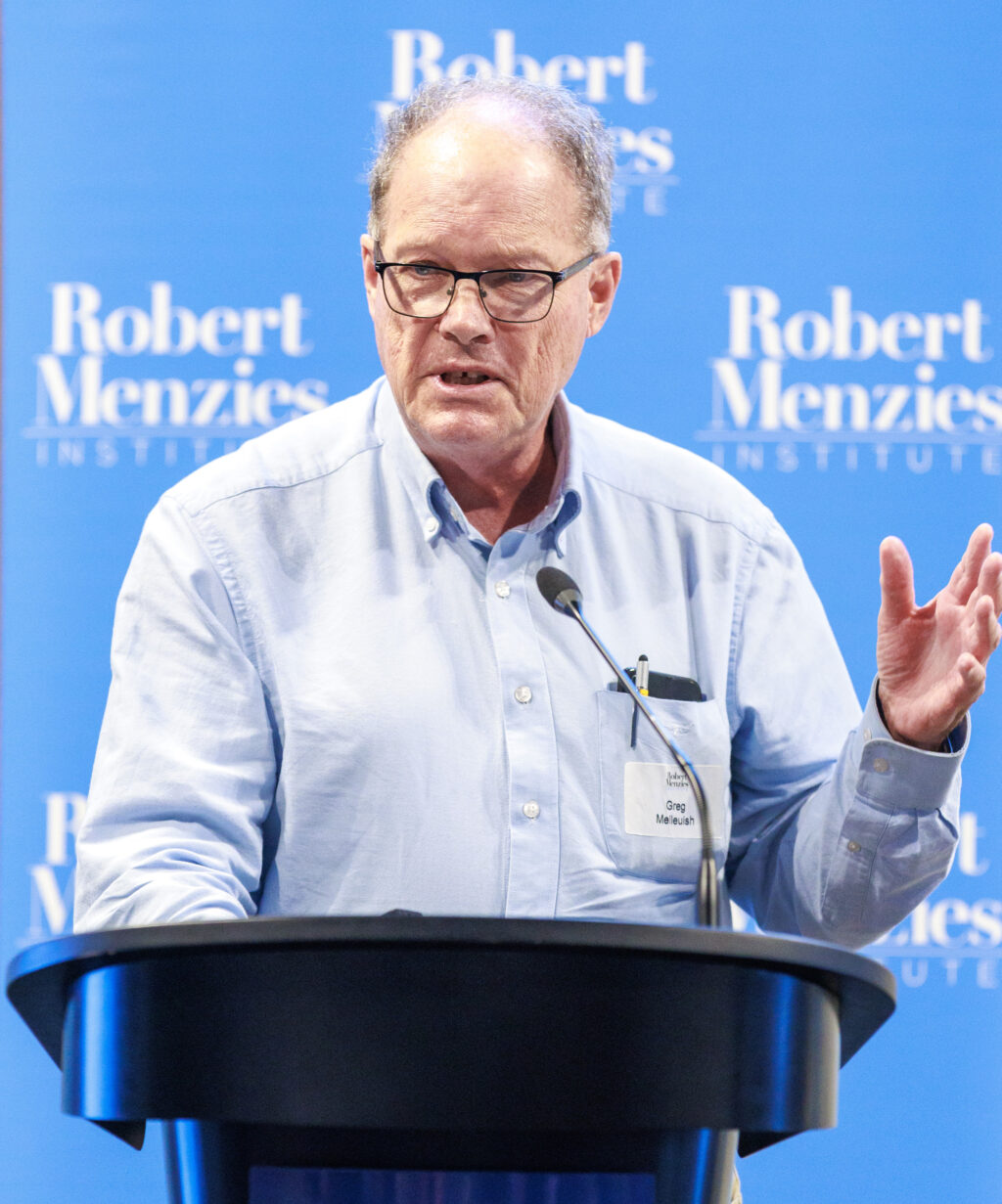
Professorial Fellow:
Professor Greg Melleuish is the Robert Menzies’s Institute’s first Professorial Fellow. He has joined the Institute to conduct a research project contextualising the full series of over 100 radio broadcasts which make up the ‘Forgotten People’ series, in conjunction with RMI Academic Coordinator Dr Zachary Gorman. Greg is a Professor in School of Humanities and Social Inquiry at the University of Wollongong, where his teaching interests range from political theory, Australian politics, ancient history and world history. Greg is an expert on Australian liberalism and conservatism, and has long been respected as one of the leading figures in this field. Greg is the co-author of the book The Forgotten Menzies (Melbourne University Press, 2021), which is the latest of many books he has produced throughout his career. Greg has published widely in the area of Australian political ideas and intellectual history. This includes his books Cultural Liberalism in Australia, (Cambridge University Press, 1995, reprinted 2009), The Power of Ideas: Essays on Australian History and Politics, (Australian Scholarly Publishing, 2009) and Despotic State or Free Individual (Australian Scholarly Publishing, 2014), as well as a number of articles. He co-wrote the entry on Australian Political Thought (with Geoff Stokes) for the Oxford Companion to Australian Politics (2007). His fellowship represents something of a reunion with the University of Melbourne, where he formerly taught European history.
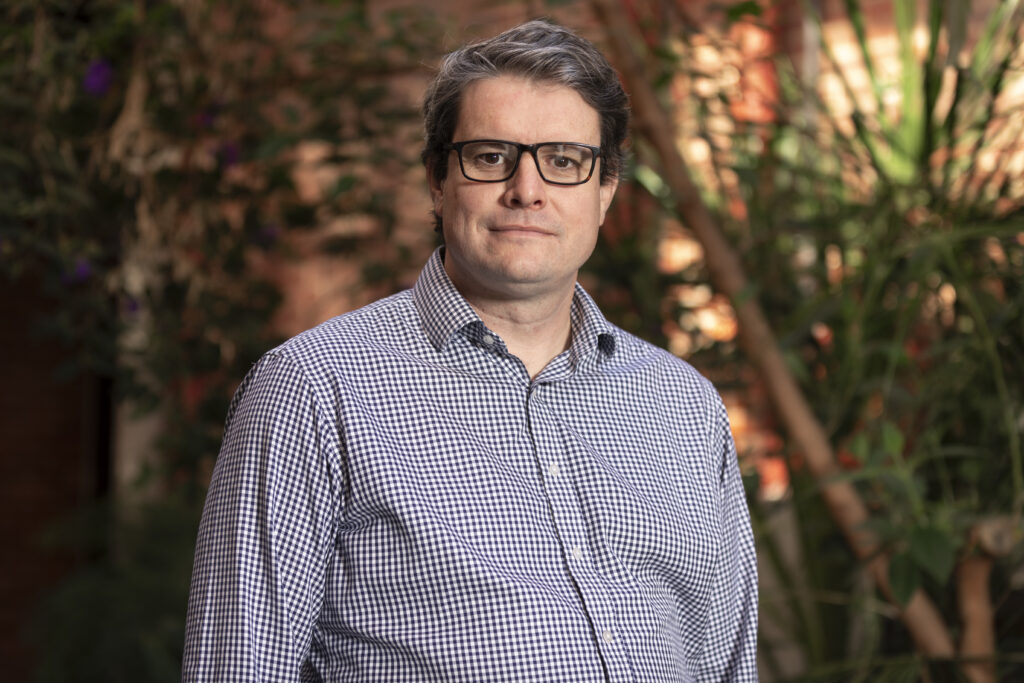
James Waghorne is a Senior Research Fellow and University Historian, working on the history of higher education in the Melbourne Centre for the Study of Higher Education. His work reaches across the history of university governance, university disciplines, the heritage of university campuses, and the changing influence of campus life and culture on the student experience.
Additionally he takes in the historical connections between universities and the state, industry and community groups.
He is co-editor (with Ross L. Jones and Marcia Langton) of the truth-telling Dhoombak Goobgoowana: a history of Indigenous Australia and the University of Melbourne. His history of the Australian Vice-Chancellors’ Committee, Australian Universities (with Gwilym Croucher), was published by UNSW Press in September 2020, and his history of the Melbourne University Union, By Students, For Students was published by Australian Scholarly in 2022. With Kate Darian-Smith he edited a collection on the interwar university professions, The First World War, the Universities and the Professions in Australia, 1914–1936 (MUP, 2019).
He has also published histories of lobby groups and professional and community organisations, including Improving Justice: A History of the Australasian Institute of Judicial Administration (AIJA, 2014), Liberty: A History of Civil Liberties in Australia, with Stuart Macintyre (UNSW Press 2011), and The Family Club: A Short History (Carlton: The Family Club Cooperative, 2018) a history of Australia’s first university childcare centre. James is an investigator on the ‘Expert Nation’ and ‘Universities and Post-war Recovery’ research projects, tracing the careers of university graduates who served in the First and Second World Wars, funded by the Australian Research Council. Among his other work has been the production of two Witness Seminars on the University’s recent past, on the 1959–1960 Immigration Reform Group and the HIV/AIDS crisis in Australia in the 1980s.
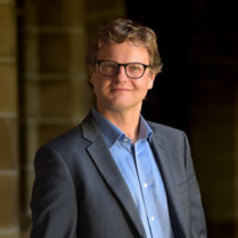
Associate Professor Gwilym Croucher is Deputy Director of the Centre for the Study of Higher Education at the University of Melbourne. A former Fulbright Scholar, his research focuses on different aspects of the political economy of higher education.
He has published widely on higher education policy and management and has led large publicly funded research projects. He is a regular media commentator on higher education in Australia.
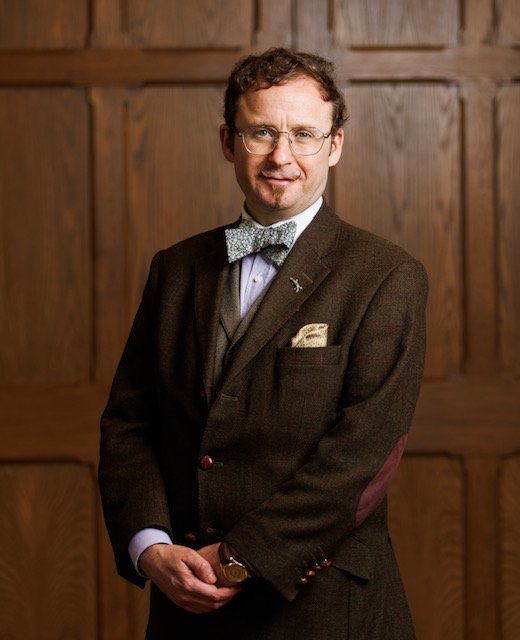
Dr Damien Freeman is a Fellow of the Robert Menzies Institute where he is responsible for the Institute’s Menzies Early Career Network. He was educated at the University of Sydney (MA, LLB(Hons), MPhil) and the University of Cambridge (PhD).
He is a writer, lawyer and philosopher, whose books include “Abbott’s Right: the conservative tradition from Menzies to Abbott” and “The End of Settlement: why the 2023 referendum failed”.
He is the general editor of the Kapunda Press, and has edited numerous collections of essays including “Faith’s Place: democracy in a religious world” and “Nonsense on Stilts: rescuing human rights in Australia”. He has also published a range of occasional papers with the Centre for Independent Studies and the PM Glynn Institute, including “Radical Conservatism: tradition as a guide for managing change”, “Amen: a history of prayers in parliament” and “So Help Me God: a history of oaths of office”.
In addition to his work at the Robert Menzies Institute, he is a Research Fellow at the Kathleen Burrow Research Institute, an Honorary Fellow of Australian Catholic University, and a member of the advisory board of the John Howard Prime Ministerial Library at UNSW.

Matt Allanby
Matt Allanby is a Fellow at the Robert Menzies Institute and oversees the Institute’s program offering for high schools. Matt is a passionate History educator who currently teaches at Xavier College, with experience in middle and senior years at Geelong Grammar School and Ballarat Clarendon College. He completed his Bachelor of Arts at The Australian National University and Master of Teaching at Monash University. He has served as a Board Director on the History Teachers’ Association of Victoria and loves Australian political history!
2025 MECN Scholars

Charlie Hume is in his final year of a Bachelor of Commerce at the University of Melbourne, majoring in Finance and Management. He currently works at Sky News as a Studio Liaison in the Melbourne Bureau. His previous experience includes roles in Corporate Finance at NAB, as an electorate officer for Victorian MP David Southwick, and as a campaign staffer during the 2022 Federal Election. He also has a keen interest in Australian politics and history.
Sign up to our newsletter
Sign up for our monthly newsletter to hear the latest news and receive information about upcoming events.

